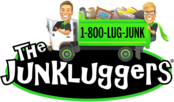What Do Air Purifiers Actually Accomplish for Manalapan Homeowners?
Air purification is an increasingly popular solution to indoor air quality problems. However, homeowners often wonder if these systems are necessary and whether they live up to the hype. If you're curious what an air purifier can do for your Manalapan, NJ home, here is a look at what you ought to know.
Air Purifier Performance
Everyone can benefit from cleaner air, but the homeowners who most frequently request air purifiers are those with household members who have respiratory problems. Studies show that high-quality air purification can reduce exposure to asthma and allergy triggers, often leading to noticeable symptom relief. People with asthma, allergies, or conditions like COPD may benefit the most. Households with pets, smokers, or multiple occupants may also find an air purifier improves comfort by reducing dander, odors, and other airborne particles. The effectiveness of a purifier depends on the type of filter and how much air it can process. Basic units may only remove a portion of particles, while HEPA-based systems can capture more than 99% of airborne particles as small as 0.3 microns when air passes through the filter. Choosing the right purifier for your home’s size and needs is essential for the best results.
Working with Other Systems
A great way to boost air purifier performance is to employ other systems. For example, a dehumidifier can reduce the presence of mold in your home by keeping relative humidity levels where mold can’t thrive. The air purifier then serves as a second line of defense.
Helping Your HVAC System
Understandably, homeowners tend to focus on the personal health benefits of air purification. However, a good air purifier can also support the performance of your HVAC system. By reducing dust, dander, and other pollutants in circulation, air purifiers help prevent buildup on coils, ducts, and vents. This helps your HVAC system operate more smoothly and may extend its service life. Your HVAC air filter also benefits since less particulate matter makes its way through the system. This can keep filters cleaner for longer and reduce strain on the blower motor. Anything that lowers the burden on your HVAC components contributes to more consistent performance.
How Air Purifiers Work Compared to Air Filters
For many households, basic air filters provide a first layer of defense by capturing large particles like hair and dust. However, air purifiers are designed to go beyond the basics by targeting much smaller contaminants that standard filters can’t fully catch.
HEPA Filters
HEPA (High-Efficiency Particulate Air) filters are among the most effective filtration options available. They can capture 99.97% of airborne particles down to 0.3 microns—small enough to trap pollen, pet dander, smoke particles, and even some bacteria and viruses. This level of filtration is why HEPA filters are commonly used in hospitals and clean environments where air quality is critical.
Activated Charcoal
Many air purification units also use activated carbon filters. These filters help neutralize odors from cooking, pets, and smoking, while also absorbing volatile organic compounds (VOCs) that off-gas from carpets, furniture, paint, and household products.
UV Light
UV-C light sterilization is another effective feature in some purification systems. In an enclosed chamber, UV-C bulbs inactivate bacteria, viruses, and mold spores by disrupting their DNA or RNA, preventing them from reproducing. While UV-C is a type of ultraviolet light, it does not naturally reach the Earth’s surface because it’s absorbed by the ozone layer. In air purifiers, the UV light remains safely contained inside the unit, making it safe for residential use. Effectiveness depends on exposure time and placement, but when paired with filtration, UV-C adds an extra layer of protection.
Recovery Ventilators
Energy Recovery Ventilators (ERVs) and Heat Recovery Ventilators (HRVs) can work alongside air purifiers. These systems bring in fresh outdoor air while transferring heat (and in ERVs, moisture) between incoming and outgoing air streams. This makes ventilation more energy efficient while ensuring that fresh air is continuously supplied to the home without introducing as many pollutants.
Air Pressure
One thing to keep in mind is that high-efficiency filters can restrict airflow. To maintain proper circulation, your HVAC system may need adjustments to fan speed or air pressure. If not configured correctly, reduced airflow can lower comfort levels and increase system strain. Our technicians are trained to ensure purifiers integrate seamlessly with your HVAC system so airflow stays balanced and efficient.
Whole-House Integration
Standalone air purifiers are available, but they only treat the air in a single room. Whole-house purification systems, on the other hand, integrate with your HVAC system to treat the air throughout your home. This provides more consistent results and may be more cost-effective than buying multiple portable units. Most models attach to the return ductwork, and installation typically requires only minor modifications. Even if your HVAC system isn’t the newest, a purifier can usually be added without requiring a full system replacement.
Your Trusted Source for Air Purification
One Hour Heating & Air Conditioning® is the choice of many Manalapan residents who want healthier, cleaner air. We back our work with a 100% satisfaction guarantee and our “Always On Time... or You Don’t Pay a Dime!®” promise. We also offer 24/7 emergency services and professional guidance on air purification systems and emerging indoor air quality technologies. If you're interested in how an air purifier could improve the air quality in your Manalapan residence, contact One Hour Heating & Air Conditioning® today.















